Public
Why Dispose of Unused Medications?
What are Opioids?
Opioid abuse is a serious — and deadly — problem in Alabama and across the country, and affects people from all races and economic backgrounds.
Prescription opioids include pain medications such as hydrocodone, oxycodone and morphine. Regular or longer-term use of prescription opioids can lead to dependence or addiction. The street drug heroin is also an opioid. People who misuse prescription opioids are at risk for using heroin. Visit The Family Doctor to learn about opioids, addiction risk factors, symptoms and treatment.
Working with Your Doctor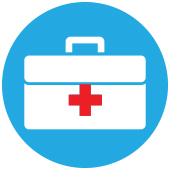
Talking openly with your physician helps you get the best care possible.
Share information. When discussing a prescription for pain medicine, tell your physician if you or any family members have had problems with prescription drugs or other drugs or alcohol, or if you have an addictive personality. Also, let your physician know if you use any other prescription medications, over the counter drugs, street drugs, or alcohol.
Ask questions. Make sure you understand when and how to take your medication and what the possible risks and side effects of your medication might be.
Follow up. Take your medication as prescribed, and don’t share your prescription with anyone. Follow up with your physician’s office if you have questions about the medication or how it makes you feel. If you are using the medication in a way that was not prescribed, are using more than your physician recommended, or are experiencing other warning signs of addiction, talk with your physician.
More information can be found here:
- American Association of Poison Control Centers
- Alabama Regional Poison Control Center at Children’s Hospital
- Substance Abuse and Mental Health Services Administration – SAMHSA
- What to Ask Your Doctor Before Taking Opioids NEW
“Doctor-Shopping” is a Crime! 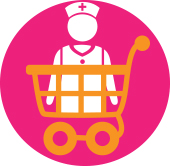
Act 2013-258 of the Alabama Legislature makes it a crime to “doctor-shop” for prescription drugs in Alabama.
The law reads that is unlawful in Alabama “for any person to deceptively obtain a controlled substance, as defined in Section 20-2-2(4), from a medical practitioner by intentionally and knowingly withholding information from the medical practitioner that the person has obtained a prescription for the same controlled substance or another controlled substance of similar therapeutic use in a concurrent time period from another medical practitioner. The unlawful activity is complete upon the delivery of the prescription to the patient and occurs at the location of the delivery.”
The penalties can be stiff – a Class A misdemeanor on the first offense and a Class C felony for four or more violations in five years – so don’t doctor-shop for prescription drugs in Alabama!
Getting Help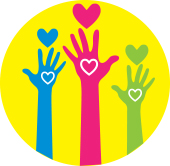
Resources are available if you are worried that you or someone you care about may be struggling with opioid addiction.
To find addiction treatment, speak with a counselor, or use an online treatment center locator:
- What is Substance Abuse Treatment? (A booklet for families)
- Search Treatment Centers by Counties/Zip Code
- Regional Poison Control Center at Children’s Hospital of Alabama
- 1-855-DRUGFREE, by the Partnership for Drug-Free Kids, is a toll-free, national helpline for parents of children who use drugs or alcohol.
SAMHSA’s National Helpline (also known as the Treatment Referral Routing Service) is a confidential, toll-free, 24-hour-a-day, 365-day-a-year, information service, in English and Spanish, for individuals and family members facing mental health and/or substance use disorders. This service provides referrals to local treatment facilities, support groups, and community-based organizations. Callers can order free publications and request other information. Call (800) 662-HELP (4357) or visit the online treatment locators.
The Regional Poison Control Center at Children’s Hospital of Alabama — (800) 222-1222 — has been serving the people of Alabama since 1958, offering free and confidential poison information and treatment recommendations to the public and physicians 24/7.
National Institute on Drug Abuse has information about drug addiction to help determine whether you, or someone you care about, may have a drug addiction, and how to get help.
The Medicine Abuse Project has resources for parents and grandparents about prescription medicine abuse and a guide for talking with children about the dangers of prescription medicine abuse.
Medication Assisted Treatment uses medication to treat opioid addiction and help people continue to function while they work towards recovery.
Naloxone (also known as Narcan) is a prescription medicine used to reverse opioid overdoses and save lives. If you, a friend or family member is at risk for opioid overdose, talk with your physician about whether naloxone is right for you.
Storing Your Medications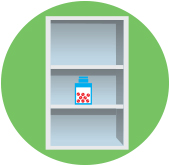
Most people who abuse prescription drugs get them from friends and family. You can play a big role in keeping powerful medicines out of the hands of those shouldn’t have them.
Make sure the people in your life don’t have access to your medicine by following these steps.
Step 1: Monitor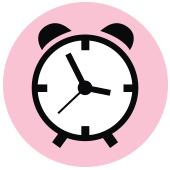
Start by taking note of how many pills are in each of your prescription bottles or pill packets.
Keep track of your refills. This goes for your own medicine, as well as for other members of the household. If you find you need to refill your medicine more often than expected, that could indicate a problem.
If your teen has been prescribed a medicine, be sure you control the medicine, and monitor dosages and refills. You need to be especially vigilant with medicine that are known to be addictive and commonly abused by teens.
Make sure your friends and relatives — especially grandparents — are also aware of the risks. Encourage them to regularly monitor their own medicines.
If there are other households a family member has access to, talk to those families as well about the importance of monitoring and safeguarding their medications.
Step 2: Secure
Approach securing your prescriptions the same way you would other valuables in your home, like jewelry or cash. There’s no shame in helping protect those items and the same holds true for your medicine.
Take prescription medicine out of the medicine cabinet and secure them in a place only you know about.
If possible, keep all medicines, both prescription and over-the-counter, in a safe place, such as a locked cabinet.
Tell relatives, especially grandparents, to lock their medicine or keep them in a safe place.
Talk to the parents of your child’s friends. Encourage them to secure their prescriptions as well.
Step 3: Dispose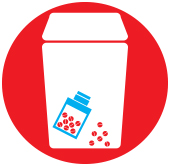
Take an inventory of all of the medicine in your home. Discard expired or unused medicine – both prescriptions and over the counter medicines.
Some people will try to retrieve discarded prescription medicine from the trash. To help prevent this from happening, mix the medicine with an undesirable substance, such as used coffee grounds or kitty litter. Put the mixture into an empty can or bag and discard.
Unless the directions on the packaging say otherwise, do not flush medicine down the drain or toilet.
Remove any personal, identifiable information from prescription bottles or pill packages before you throw them away. This protects your family’s privacy and prevents unauthorized refills.
Why Dispose of Unused Medications?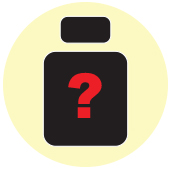
Most people who abuse prescription drugs get them from friends and family. You can play a big role in keeping powerful medicines out of the hands of those who shouldn’t have them. This includes getting rid of your medications when they’re no longer needed. There are many good reasons to do this:
- Leftover pills are an attractive target for people who misuse prescription drugs.
- Old medications could be accidentally ingested by children and pets.
- Expired medicines may lose their effectiveness, or may not work for other illnesses or conditions.
- A drug that worked for you could be harmful to someone else. Doctors prescribe drugs based on a person’s specific symptoms and medical history.
- A medicine that worked for you in the past may not work for you in the future, even if you have similar symptoms. It could even be harmful.
Home Disposal
- Unless the directions on the packaging say otherwise, do not flush medicine down the drain or toilet.
- An alternative to flushing is to mix the medicine with kitty litter, coffee grounds, or another unpleasant substance. DON’T crush tablets or capsules.
- Put this mixture in a sealed plastic bag and throw it in your household trash.
- To protect your privacy and to prevent unauthorized refills, remove all information from the prescription labels of empty pill bottles.
Other Ways of Disposal
Some communities other resources where you can safely dispose of medications you no longer use. Here’s how to find medication disposal resources in your area:
- Dispose My Meds
- U.S. Food and Drug Administration How to Dispose of Unused Medicines
- Because needles, sprays, inhalers, liquids and creams are usually not accepted at community drop boxes, check with your pharmacy about its unused medication return policy.
